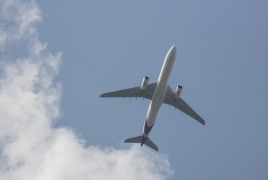
If you decide to fly, the odds that you will pick up Covid-19 are low, according to one expert analysis from the MIT, which shows that about 1 in 4300 passengers will contract the virus, on average, Bloomberg reports.
Despite the known dangers of crowded, enclosed spaces, planes have not been the sites of so-called superspreading events.
That’s not to say flying is perfectly safe — safety is relative and subjective. But as restrictions continue to change, the only way to move forward through this long pandemic is to start thinking in terms of risk-benefit ratios. Very little is without risk, but perhaps some risks — such as flying — are small enough to warrant taking.
Arnold Barnett, a professor of management science at the Massachusetts Institute of Technology, has been trying to quantify the odds of catching Covid-19 from flying. He’s factored in a bunch of variables, including the odds of being seated near someone in the infectious stage of the disease, and the odds that the protection of masks (now required on most flights) will fail. He’s accounted for the way air is constantly renewed in airplane cabins, which experts say makes it very unlikely you’ll contract the disease from people who aren’t in your immediate vicinity — your row, or, to a lesser extent, the person across the aisle, the people ahead of you or the people behind you.
What Barnett came up with was that people have about a 1/4300 chance of getting Covid-19 on a full 2-hour flight — that is, about 1 in 4300 passengers will pick up the virus, on average. The odds of getting the virus are about half that, 1/7700, if airlines leave the middle seat empty. He’s posted his results as a not-yet-peer-reviewed preprint.
There are now more than 19.8 million cases of the novel coronavirus worldwide, including over 12 million recoveries and 731,000 deaths, according to Johns Hopkins University, which is tracking figures from the World Health Organization and additional sources.

